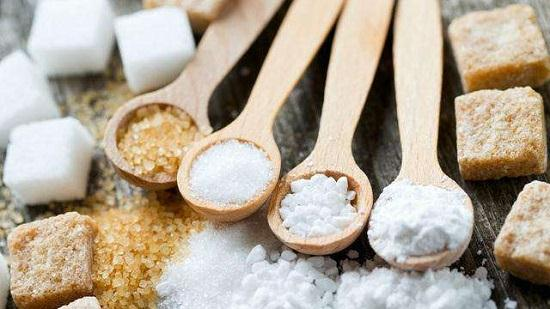| The classification and uses of sweeteners |
| TIME:2025-03-24 HITS:299 |
|
With the development of the social economy, people's dietary structure and living habits have undergone earth-shaking changes. The prevalence of diabetes is getting higher and higher. When faced with the "sweet temptation", one often "turns pale at the mention of sugar". In fact, although sweeteners are very "sweet", their properties are different from those of added sugars. Sweeteners are a type of food additive that can give food a sweet taste and provide little or no energy, offering a variety of options for people who need to control their blood sugar. Due to its stable process performance and good safety, it has been widely used in the food, pharmaceutical, daily chemical and other industries around the world.
Classification of Sweeteners
Low-intensity sweeteners: erythritol, xylitol, maltitol, etc. High-intensity sweeteners: cyclamate, saccharin, aspartame, acesulfame potassium, sucralose, stevioside, mogroside, etc. Among them, high-intensity sweeteners and erythritol provide almost no energy and are non-nutritive sweeteners.
The function of sweeteners 1.Providing sweetness is beneficial for controlling energy intake. Under the premise that the total amount of diet remains unchanged, replacing added sugar with sweeteners can retain the sweet taste while reducing energy intake. People who consume too much sugar or have a need to control their sugar intake can appropriately use sweeteners to replace sugar. 2.It helps to reduce the risk of dental caries. Sugar remaining inside the mouth will produce acid after being metabolized by microorganisms. Erode the enamel and further develop into dental caries. Sweeteners cannot be metabolized and utilized by oral bacteria. Replacing added sugar with sweeteners can help reduce the risk of dental caries. 3.Provide more diverse food choices for people with high blood sugar and diabetes patients. Sweeteners have almost no effect on blood sugar and are used in the dietary choices of diabetic patients. It is safe for diabetic patients to consume non-nutritive sweetener foods/beverages in moderation. Diabetic patients who have a sweet tooth can consume sugar alcohols and non-nutritive sweeteners in moderation. The use of sweeteners, including both natural and synthetic ones, in accordance with relevant regulations and standards is safe.
For consumers, when consuming foods containing sweeteners, it is advisable to adopt the following suggestions:
1.Low-sugar and sugar-free foods and beverages are not necessarily truly "calorie-free". It is suggested that consumers make reasonable choices of products by reading the food ingredient list and nutrition facts table. For instance, people with high blood sugar and diabetes should pay attention to the starchy carbohydrates in the food ingredient list that can cause an increase in blood sugar, or refer to the doctor's advice when choosing products. 2.Some consumers have experienced "diarrhea" reactions after consuming large amounts of sugar alcohols in a short period of time. This is a kind of osmotic diarrhea, which is different from the diarrhea caused by microorganisms in daily life and does not fall under food safety issues. Different people have significant differences in tolerance to sugar alcohols. It is recommended to choose relevant products based on your own situation and consume them in moderation.
Disclaimer: The news and information released on the ChemicalBook platform are provided only as knowledge and are intended for reference and exchange among industry insiders. No guarantee is made regarding their accuracy and completeness. You should not use this to replace your independent judgment. Therefore, any risks arising from the information should be borne by yourself and have nothing to do with ChemicalBook. The article covers all contents, including but not limited to text, pictures, etc. If there is any infringement, please contact us for handling!
|

 Focus on plant active ingredients
Focus on plant active ingredients  React to complaint within 24 hours once receive it
React to complaint within 24 hours once receive it  Free sample 10~50g
Free sample 10~50g  Serve multiple enterprises
Serve multiple enterprises 
 Tel:+86-135 2651 0795
Tel:+86-135 2651 0795 Add:Tongying Enterprise Headquarters, Intersection of Laodong Street and University South Road, Xinmi, Zhengzhou City, China.
Add:Tongying Enterprise Headquarters, Intersection of Laodong Street and University South Road, Xinmi, Zhengzhou City, China. Tel:+86-135 2651 0795
Tel:+86-135 2651 0795 Email:cassie@jy-additives.com
Email:cassie@jy-additives.com